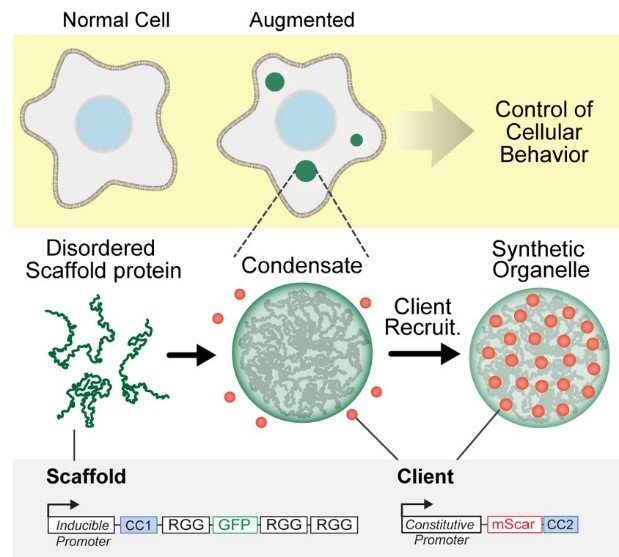A platform technology utilizing synthetic organelles to modulate cell cycle, cell behavior, and stemness/differentiation status which could be used for cell engineering, cell therapy etc.
Technology
Cells compartmentalize enzymes and their substrates into organelles to insulate or facilitate biochemical reactions. The ability to artificially construct organelles in cells can allow for modification of cellular behavior and to control of cellular activity.
Dr. Matthew Good, PhD and his team at the Medical School of the University of Pennsylvania developed a platform approach for generation of membraneless organelles in human cells allowing them to regulate endogenous cellular activities through sequestration and insulation of native proteins. The inventors were able to efficiently control cellular behavior including proliferation, division, and cytoskeletal organization, and regulate the on-off state using light and heat. The invention allows for engineering of cells with built-in reversible switch regulating cellular behaviors. The technology can have a broad range of use from research tools for cellular studies to a synthetic controllable hub for immunotherapy and stem-cell therapy.
Advantages
Applications
- Cellular engineering and cell therapy
- Pluripotency induction
- Cell differentiation
- Cell cycle control

Schematic overview assembling synthetic organelles from disordered scaffold proteins to target clients
Case ID:
22-9807-tpNCS
Web Published:
5/12/2023
Patent Information:
| App Type |
Country |
Serial No. |
Patent No. |
File Date |
Issued Date |
Expire Date |